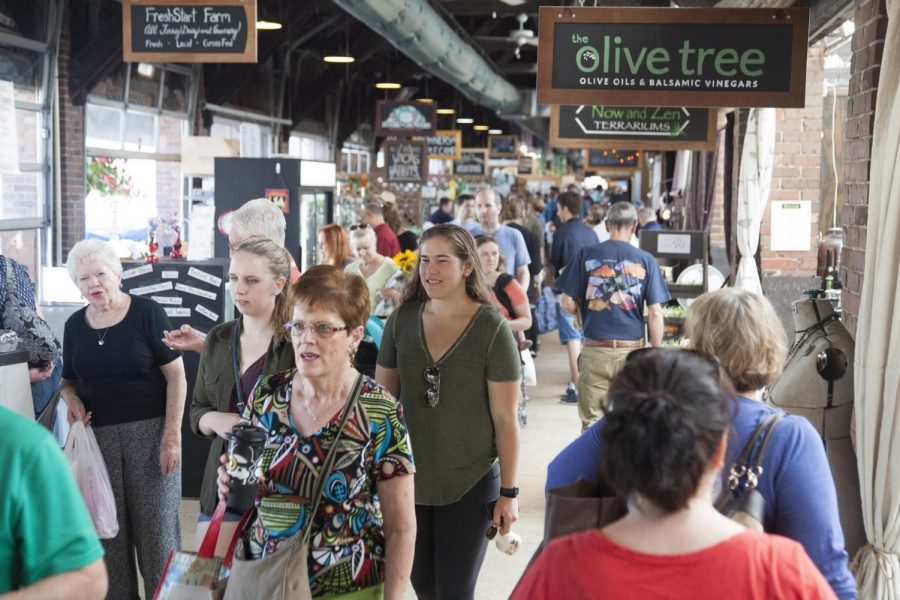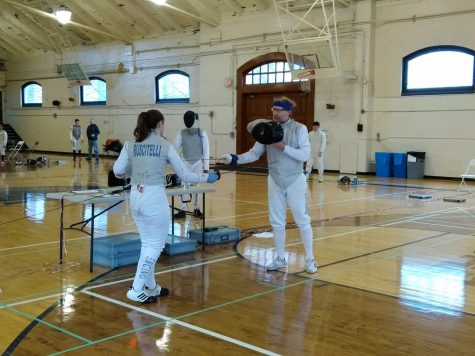Shopping locally presents benefits
Modern-day industry relies a great deal on large companies, monopolies, and international businesses. However, many large companies rely on practices that are harmful to the economy, their employees, and their customers. For instance, according to BBC News and the Huffington Post, Apple, Sony, Samsung, Hershey’s, Nestle, and other large manufacturers still rely on child labor. China requires that cosmetic companies test on animals in order to sell there, so companies like L’Oreal and Estee Lauder still practice animal testing.
In response to this, part of the population has been looking for a more ethical way to shop so they do not give their money to companies that maintain practices that they disagree with morally. Many different movements, such as veganism and fair trade advocacy have begun as a result of the search for a more ethical way to shop.
One possible solution to living a more sustainable, ethical lifestyle is to shop at local businesses and stores. There are many local businesses, restaurants, and shops in the Dayton area. Many small businesses and farmers set up shop at The Second Street Market.
“If we don’t support local farmers and local merchants we will have a desert in rural areas and we already have food deserts in urban communities where there’s nothing left but the big box stores,” Martha Thomas of Fresh Start Farms and vendor at Second Street Market said.
According to the American Nutrition Association’s website, food deserts are “parts of the country vapid of fresh fruit, vegetables, and other healthful whole foods, usually found in impoverished areas.” These areas typically stem from a lack of grocery stores or local farms. Massive factory farms also contribute to this issue, as well as causing a host of other issues. Factory farms have a monopoly over the food and livestock market, which is making it much more difficult for family farms or smaller farms with more ethical practices to succeed. Buying food from factory farms also results in more handling between the farm and your plate.
“[Local produce] is handled less by other people and the trucking industry,” Maryann Simpson, owner of New World Alpaca Textiles and vendor at Second Street Market said.
This benefits the local economy, because putting money into small local businesses allows the whole area to eventually become more financially stable over time. It also benefits the environment by buying from smaller farms that leave a smaller carbon footprint, and reducing the amount of fuel that is used to transport it from a farm to a local market or grocery store.
“If we buy from local farmers and local manufacturers we are making such a rippling impact. We’re saving the fuel that’s used to ship things from other countries,” Catherine Harrison, owner of Celluvati and Phd neuroscientist said.
It also can ensure that the food being purchased was not grown using harmful chemicals. While the USDA does have some regulations and limitations for the chemicals and pesticides that are allowed to be used, it does not entirely prohibit the use of chemicals.
“If you can buy from a farmer who is growing some vegetables and selling them to you directly you are not only supporting that farmer but you’re allowing that farm to exist instead of a Monsanto-based industry farm,” Harrison said.
Monsanto is now an industry leader in the farming industry, but it started out producing chemicals. According to modernfarmer.com, Monsanto used to produce Agent Orange, Dioxins, DDT, and other harmful chemicals and pesticides. It developed into a farming company in the early 1980’s, and now is a massive player in the modern agriculture economy.
If major companies are corrupt yet still control so much of the industry, it may seem daunting to wade through companies that do maintain ethical or environmentally friendly practices.
“Think through the entire process, like this thing that you bought where did it come from,” Harrison said.
If you don’t know where to start, the internet is home to multiple resources that will shed light on the issue. The internet houses search engines that will search through a database of cruelty free, vegan, fair trade, or child-labor free products.
“The best resource is really the internet,” George Shaw, co-owner of Dayton Urban Green said. “There are many websites you can go to where you can find out about the companies you’re buying from.”
If you are looking for a place to start, Racked and Refinery29 also provide guides to learning how to shop for clothes in a more sustainable and ethical way https://www.racked.com/2017/8/22/16167994/eco-fashion-ethical-shopping https://www.refinery29.com/ethical-shopping.






